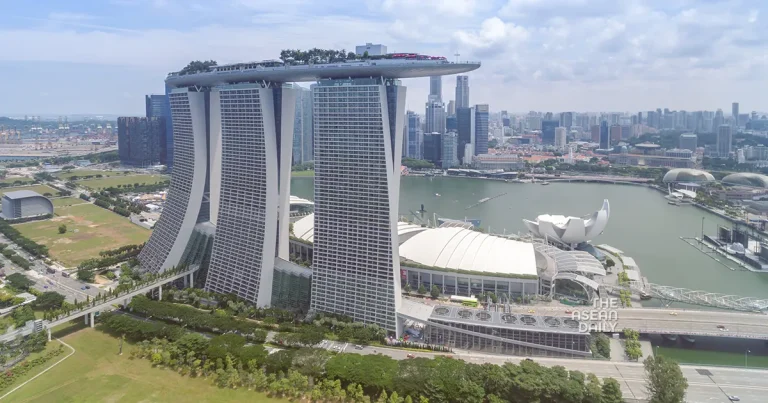31-12-2023 (SINGAPORE) Singapore’s economy managed to avoid a recession in 2023, with Prime Minister Lee Hsien Loong acknowledging the impact of a “troubled” international environment on growth and security. In his New Year’s message, Lee announced that the country’s gross domestic product (GDP) expanded by 1.2%, slightly lower than the trade ministry’s previous forecast of around 1%. Looking ahead to 2024, the official projection for growth remains at 1% to 3%.
Lee described 2023 as a “challenging year” marked by ongoing tensions between the United States and China, as well as the unresolved conflict in Ukraine. He also highlighted global concerns regarding the human suffering in the Israel-Hamas conflict. The prime minister emphasized that Singapore should expect a less favorable external environment for the foreseeable future, with geopolitical uncertainties continuing to impact the global economy.
At the age of 71, Lee has been serving as prime minister since 2004 and plans to pass on the leadership to his deputy, Lawrence Wong, in 2024. In what is likely to be his final New Year’s message, he called on Singaporeans to fully support the new leadership during the transition period. Lee acknowledged that leadership transitions are delicate, and Singapore will be closely observed by both local and international observers to see how the new leaders connect with the people and whether the nation can maintain its success and exceptionalism.
Under Lee’s leadership, Singapore’s per capita income has significantly increased from around $27,600 in 2004 to $87,880 in 2023, making the small island nation one of the wealthiest in the world. He has guided Singapore through the global financial crisis and the COVID-19 pandemic, while also strengthening relationships with major powers like the United States and China, as well as neighboring countries such as Malaysia and Indonesia. Singapore’s future prospects heavily rely on a sustained recovery in global trade, as its exports are more than one-and-a-half times the size of its economy. Although overseas shipments experienced growth for the first time in 14 months in November, the gains were mainly due to a low base from the previous year.
Lee acknowledged that despite the overall economic growth in 2023, households in Singapore are still feeling the pressure of higher living costs, even though inflation is gradually easing. Managing inflation has been a key priority for policymakers since the city-state reopened post-pandemic. The government has introduced support measures worth billions of dollars, and the central bank has maintained an appreciating path for the local currency to mitigate the impact of imported inflation.
Starting from January 1, a 1 percentage point increase in the goods and services tax to 9% will add to price pressures. However, the prime minister assured that the additional revenue will help cover growing healthcare expenses, and the government will continue to provide monetary assistance and subsidies to support the population and alleviate the impact of these changes.




